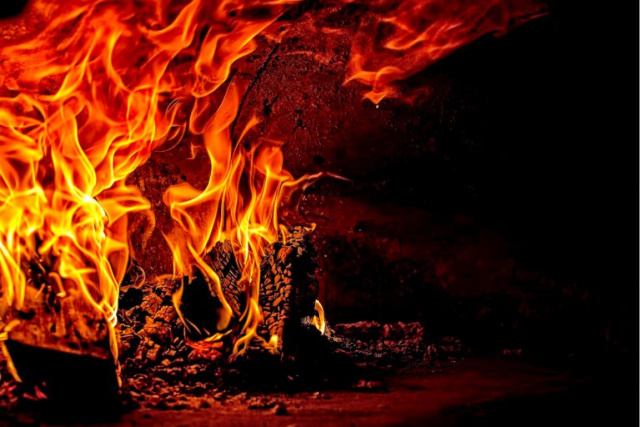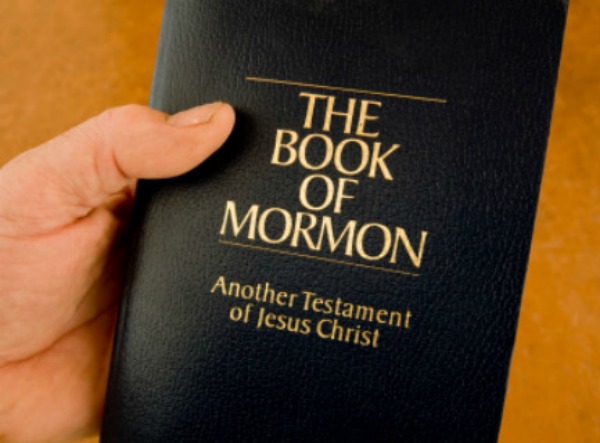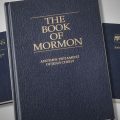Question
Gramps,
I understand that we are redeemed from the physical effects (physical death) of the Fall through the universal resurrection of Christ. I read in Lehi’s words of 2 Ne. 1:22 that wickedness can bring “Eternal destruction of both soul and body.“ If we are universally resurrected, what then is the “eternal destruction of the body” Lehi is referring to? Am I missing something?
Joseph
Answer
Joseph,
As I have pondered your question I have had a few thoughts enter my mind and heart. One of the thoughts reminded me of one of my favorite statements made by Moroni in the Book of Mormon. As Moroni is writing down the impressions that come to his heart he makes a honest inquiry to the Lord (Ether 12:23-24),
“And I said unto him: Lord, the Gentiles will mock at these things, because of our weakness in writing; for Lord thou hast made us mighty in word by faith, but thou hast not made us mighty in writing…
And thou hast made us that we could write but little, because of the awkwardness of our hands. Behold, thou hast not made us mighty in writing like unto the brother of Jared.”
When I review this scripture and your question, I wonder if Lehi might have actually meant “[spirit] and body” rather than “soul and body.” I’m not sure that would be accurate, because in another light, when we look at the American Heritage dictionary the word “soul” is defined as, “A part of humans regarded as immaterial, immortal, separable from the body at death, capable of moral judgment, and susceptible to happiness or misery in a future state.” When Joseph Smith was translating the Book of Mormon a common interchangeable word for spirit would be soul. This then would make Lehi’s statement more accurate regarding the eternal destruction of the soul (spirit) and body. The word “body” wouldn’t add any additional meaning to this scripture.
For a minute though, let’s ponder the word body according to how you are asking this question. If Lehi purposely used “soul” and “body” in order to more clearly define the eternal state of those who are disobedient what could it mean. Lehi may be pointing out the difference between the body of the soul who receives eternal life, and the body of the soul that receives eternal life. Each kingdom has a different countenance and glory, which is compared to that of the stars, the moon, and the sun.
The words of Joseph Fielding Smith might have more meaning than just his interpretation of Lehi’s words,
““Every soul born into this world shall receive the resurrection and immortality and shall endure forever. Destruction does not mean, then, annihilation. When the Lord says they shall be destroyed, he means that they shall be banished from his presence, that they shall be cut off from the presence of light and truth, and shall not have the privilege of gaining this exaltation; and that is destruction” (Doctrines of Salvation, comp. Bruce R. McConkie, 3 vols. [1954–56], 2:227–28). Wickedness destroys the opportunity for a resurrection into a higher degree of glory (see D&C 88:30–31).” (emphasis mine)
Joseph Fielding Smith uses the phrase “the resurrection and immortality” although they mean the same thing, similar probably to Lehi and the translation we have been given. Lehi appears to have been emphasizing our bodies (resurrected souls, glorified souls) as JFS was emphasizing immortality as a result of the resurrection.
One last thought or quote on this subject:
2 Ne 1:22 the eternal destruction of both soul and body
“This expression does not have reference to the annihilation of the body and spirit of the wicked. Such an interpretation would contradict many passages of scripture, the better part of which have been spoken by Nephite prophets. The Book of Mormon is most emphatic that the resurrection is universal and that it consists of the inseparable union of body and spirit. (See Alma 11:44-45; Alma 40:19-23.) The body and soul could properly be thought of as having been destroyed in the sense that they come forth in some resurrection other than the first or celestial resurrection. Such was Lehi’s meaning in this instance (see 1 Nephi 14:3).” (McConkie and Millet, Doctrinal Commentary on the Book of Mormon, vol. 1, p. 189)
Gramps







